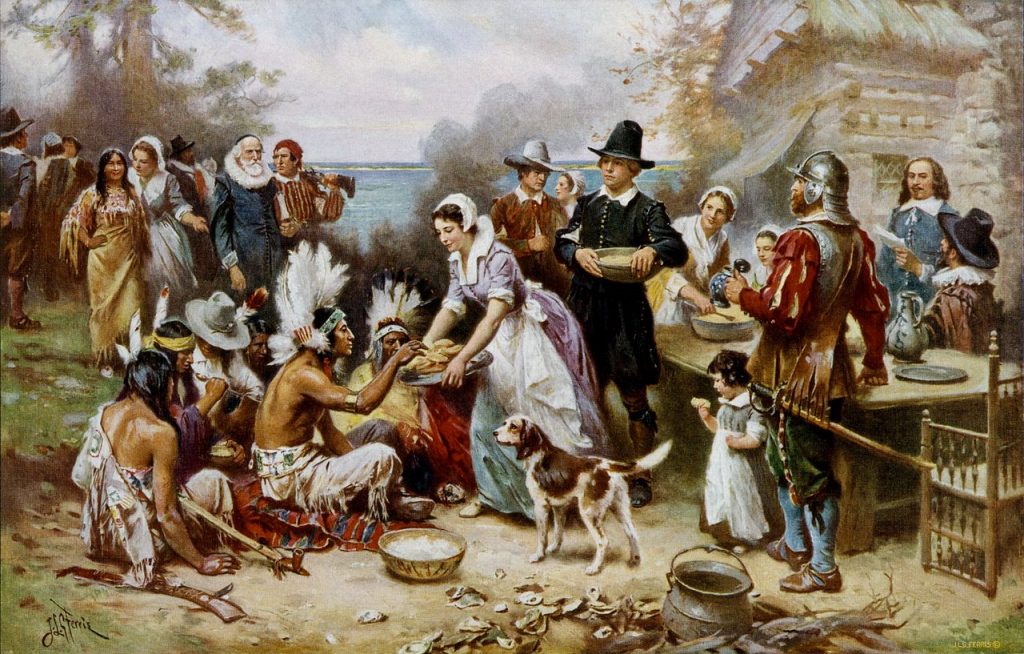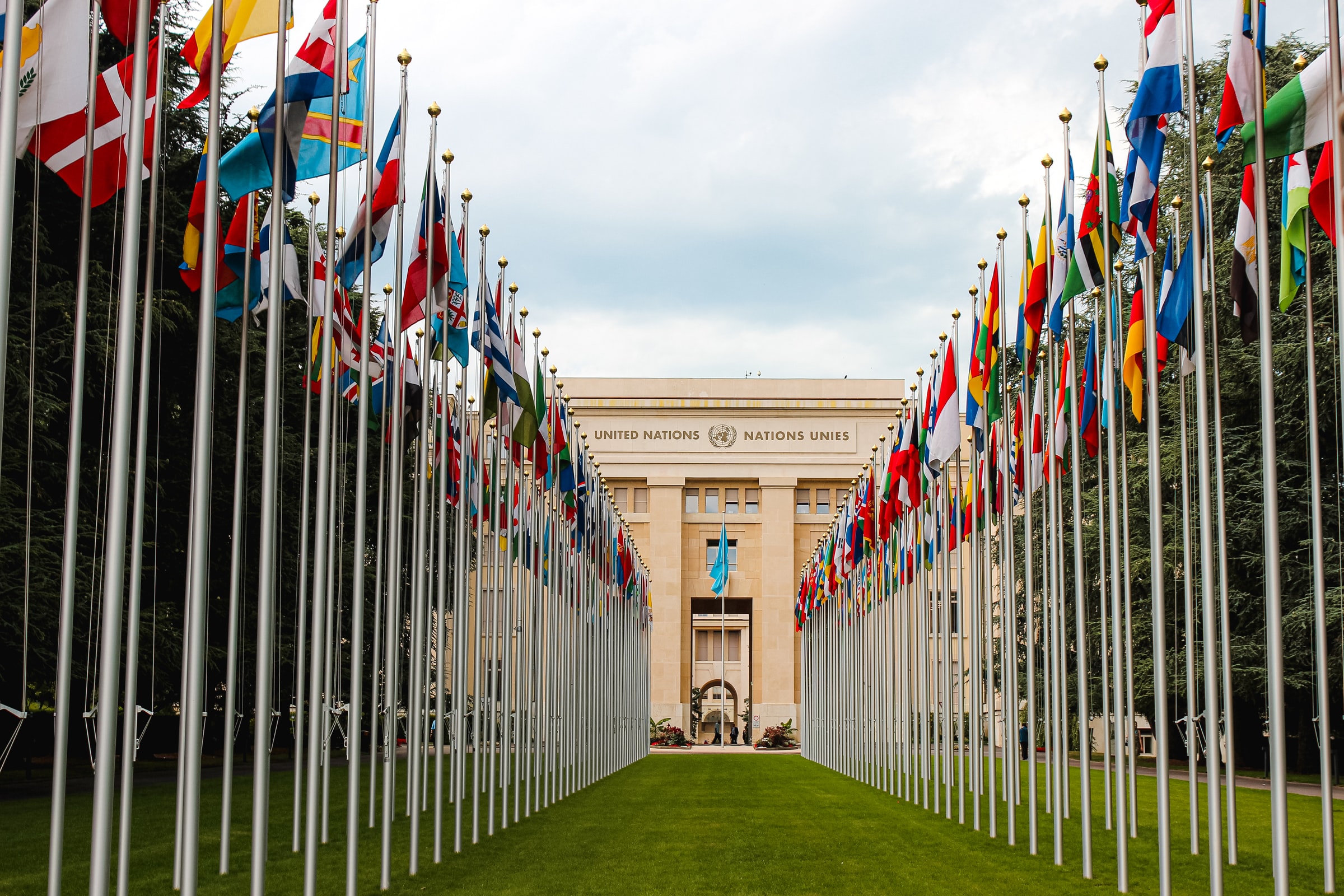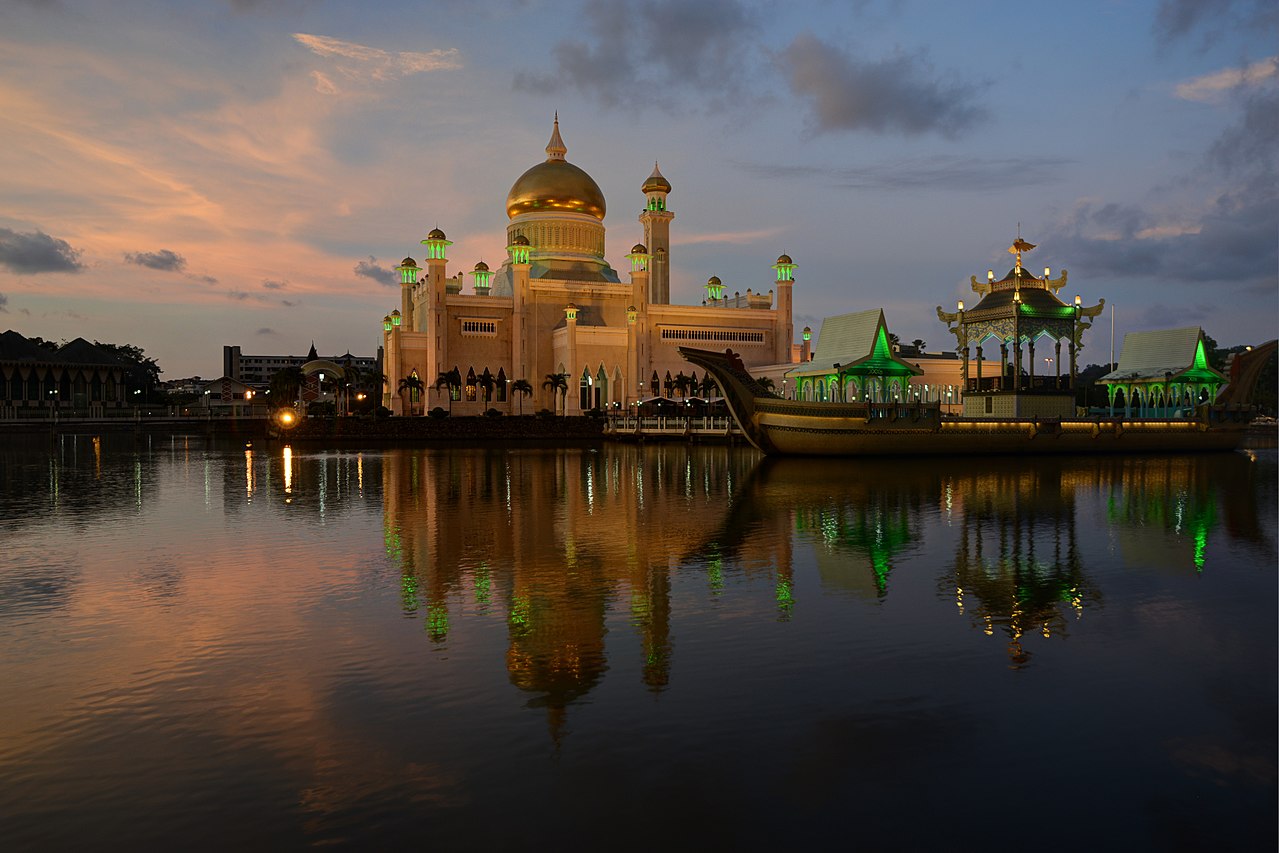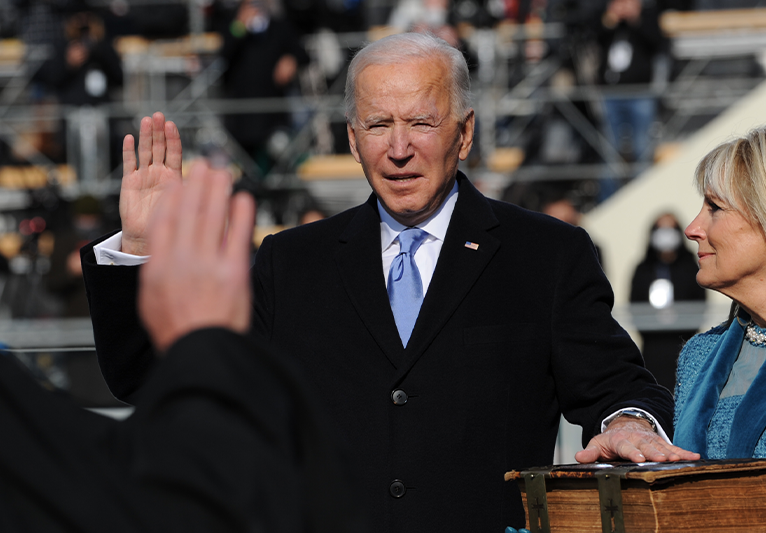Last week, Americans marked the 400th anniversary of the “First Thanksgiving”. Understood as a founding narrative for the nation, the holiday sparks debates about that first celebration, ranging from the courage of pilgrims on the quest for religious freedom to Christian expansionism at the peril of Native Americans. In our latest post, Dr Dennis Hoover unpacks this debate, providing resources and insights into Thanksgiving, Christianity, and what it means for the United States today.

Last week Americans marked the 400th anniversary of the “First Thanksgiving,” the iconic harvest celebration meal shared by the Pilgrim settlers and the Wampanoag in Plymouth, MA in the fall of 1621, less than a year after the Mayflower landing. The anniversary comes at a time of great polarization and politicization in discussions of American history. At both an academic and popular level, recent years have witnessed increasingly heated debate over how American history is told, and who tells it.
The national discourse about history and public historical memory is becoming radically divided between a 1619 Project style posture of sweeping critique and a 1776 Commission style posture of sweeping defensiveness. The Thanksgiving holiday and traditions, though much beloved by many, are not immune from these debates, especially when it comes to interpretating the moral and national significance of the Pilgrims. To some they were prototypical Americans, representing virtues such as courage and resilience, as well as valiant pursuit of freedom to live out their faith as they saw fit. But to others, they were just another group of white Christian colonists, using religion to provide a veneer of theological legitimacy to expansionism (a “doctrine of discovery”) with genocidal effect.
There is an urgent need for clear-eyed research and constructively candid dialogue on American origins and identity, and implications for contemporary issues of civic solidarity, inclusiveness, and immigration. To help meet this need, the journal I edit, The Review of Faith & International Affairs, has been a partner this fall on a timely project provocatively entitled “Who ‘Belongs’ at Uncle Sam’s Thanksgiving Table?” Supported by a Networking Grant to Gordon College from the Council for Christian Colleges and Universities, the project uses the 400th anniversary of the first Thanksgiving as an opportune moment to commission original scholarship and convene dialogues featuring a diverse array of historians, social scientists, practitioners, and religious leaders.
The project asked each of its contributors to grapple with questions such as: Thanksgiving is treated as an American “founding” narrative—but should it be? If it’s an important part of a narrative of American identity, what is the moral of the story? Is it the story of a “Christian nation”? Is it the story of a pluralistic nation? A nation embracing respect and religious freedom for all, especially refugees seeking sanctuary? How does this fit with the narrative that America was built on land stolen from Native Americans? Or that America was built on the backs of slaves? Or that America is a nation founded on immigrants, including those not of white European descent? Do historians—especially Christian historians—have a particular responsibility for intellectual and civic leadership, reckoning with the past and helping create conditions for a more inclusive future?
A symposium of articles in the fall issue of The Review of Faith & International Affairs is devoted to the project’s themes. The symposium was guest edited by Matthew Rowley and features contributions from Mark Noll, Soong-Chan Rah, Christine Arnold-Lourie, Margaret Bendroth, Judd Birdsall, and Abram Van Engen. As Rowley wrote in his insightful introductory article:
“America’s ambiguous relationship with the Mayflower generation stems from fundamental tensions within that story: They sought religious freedom but did not easily extend this freedom to others; they fled the coercive arm of the English monarch but felt justified in enslaving Algonquians and Africans; they worked for peace with their neighbors but this gave way to exploitation; many desired good for Native Americans but their individual and collective actions made coexistence difficult; persecution drove them from England, but they drove Native Americans from the land … The ambiguity involved in interpreting their legacy is a part of the debates over what America is, who is included and, most controversially, who gets to decide.”
Rowley deftly calls for transcending polarized, culture-war responses to historical complexity. Between a “Make America Great Again” disposition of historical hagiography and a “Make America Lament” disposition that sees the original sin of white supremacy as historically hardwired, there is a constructively critical third way, “Make America Better.”
This same spirit of building bridges—but without papering over real disagreements—animated each of the subsequent project components, which included:
- Two panel discussions hosted by Gordon College on November 5. The first panel, “Thanksgiving at 400: Revisiting American History and ‘Founding’ Narratives,” featured four historians including Rowley, Richard Pickering, Nicholas Rowe, and Stephen Alter. The second, “Uncle Sam’s Thanksgiving Table: Christian Perspectives on American Identity, Inclusion, and Immigration,” featured a diverse array of four distinguished Christian leaders: Mark Charles, Soong-Chan Rah, Nicole Bibbins Sedaca, and Roberto Miranda.
- A series of essays at the Berkley Forum, the blog platform of the Berkley Center for Religion, Peace, and World Affairs at Georgetown University. The collection features thoughtful analysis and commentary from each of the project’s leaders (Rowley, Ruth Melkonian-Hoover, Judd Birdsall, and Soong-Chan Rah), as well as historians Margaret Bendroth, Christine Arnold-Lourie, Abram Van Engen, Nicholas Rowe, Stephen Alter, and John Coffey.
- A Berkley Center webinar on November 17. Moderated by Birdsall, the webinar features Rowley, Arnold-Lourie, and Bendroth engaging in lively conversation about the contested legacy of Thanksgiving.
I have learned a great deal from each of this project’s contributors. I’ve been challenged to rethink and re-envision. There are many takeaways, which will vary depending on one’s vantage point and analytical aperture.
For me a particularly helpful approach was suggested by Richard Pickering (Deputy Director of Plimoth Patuxet Museums) in his presentation at the Gordon College event. Pickering noted that, when we focus specifically and narrowly on the first “Thanksgiving” meal itself, and the context and conditions that brought the Pilgrims and the Wampanoag together, we see a remarkable instance of relational diplomacy. The subsequent history is of course a long and ongoing saga of violence and injustice, but for that particular moment there were two communities, each in a state of profound vulnerability, coming together in mutual peace and alliance.
I see in this moment, however fraught and fleeting it may have been, a precedent for pluralism. It’s a signpost for a path that could have been taken—one of respectful mutual engagement between people of radically different cultures and cosmologies—and that could be taken again in American culture and politics. It’s time to put robust pluralism, not politicized histories of Pilgrims, at the center of America’s national narrative.
Note: This piece gives the views of the author, and not the position of the LSE Religion and Global Society blog, nor of the London School of Economics.





